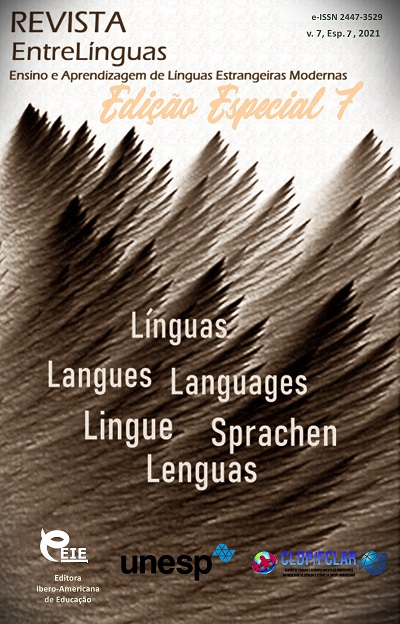Assessing the readability of translations with the aim of identifying the audience Case study: the little prince book
DOI:
https://doi.org/10.29051/el.v7iesp.7.16306Keywords:
Education, Translation, Language, Flash readability indexAbstract
An essential issue in education is the discussion of reading texts. In this article, the aim is to study and compare the readability of the classic work of THE LITTLE PRINCE and its translations on the one hand and the audience of this work in different languages on the other hand. The classical works were compared and examined with four English, German, Italian, and Spanish in terms of readability and audience index. Random sampling of French text was done in 5 different sections. The corresponding sections of each of the samples of the French text were extracted from the translations, and then all the samples were examined using the flash readability index. This result indicates that the Flash index is not currently suitable for the Italian and Spanish languages. Therefore, according to the nature and language category, the flash readability index for these two languages should be adjusted.
Downloads
References
Baghdasaryan, A.F. (2008). Civil law problems of concluding a franchising agreement: thesis for the degree of candidate of legal sciences. - Moscow,.- 257 p.
Dudin, D.I. (2014). The counterparty prohibits concluding similar agreements with third parties. When such a prohibition complies with the law. Arbitration practice, 9, P. 57.
Kulakovsky, V.V. (2017). Antimonopoly regulation of a franchise agreement. Property relations in the Russian Federation, 10, 95 - 102
Raad, P. (2014). EFFECTIVENESS OF EU LAW AND POLICY ON VERTICAL RESTRAINTS AT PROTECTING COMPETITION. Wroclaw Review of Law, Administration & Economics, 3(1), 119-125 [Digital source]. URL: https://cyberleninka.org/article/n/670884 (access mode: 06.07.2020).
Sitdikov, R.B. (2017). Legal protection of know-how in Russia. - M.: Statut,- 144 p.
Sova, V.V. (2015). Agreements on the disposal of the exclusive right to intellectual property: today and tomorrow. Property relations in the Russian Federatio, 12, P.9.
Suvorov, Yu.A. (2019). Agreements on exclusivity" in the light of antimonopoly legislation. Competition law, 1, P.26.
Yuritsin, A.A. (2018). Franchising and franchise agreement: results and prospects of legal regulation: monograph. - M.: Yustitsinform,.- 134 p.
COMMISSION REGULATION (EC) NO 2790/1999 of 22 December 1999 on the application of Article 81(3) of the Treaty to categories of vertical agreements and concerted practices // Official Journal of the European Communities. 29.12.1999. L 336/21-25.EUR-Lex [Digital source]. URL: https://eur-lex.europa.eu/legal-content/EN/TXT/?uri=CELEX%3A31999R2790 (access mode: 06.07.2020).
Federal Law dated 28.12.2009 No. 381-FZ No. "On the Foundations of State Regulation of Trade Activities in the Russian Federation". Collected Legislation of the Russian Federation. 2010. No. 1. Article 2.
Downloads
Published
How to Cite
Issue
Section
License

This work is licensed under a Creative Commons Attribution-NonCommercial-ShareAlike 4.0 International License.
Os manuscritos aceitos e publicados são de propriedade da Revista EntreLínguas. Os artigos publicados e as referências citadas na Revista EntreLínguas são de inteira responsabilidade de seus autores.
Transferência de direitos autorais – autorização para publicação
Caso o artigo submetido seja aprovado para publicação, já fica acordado que o(s) autor(es) autoriza(m) a UNESP a reproduzi-lo e publicá-lo na EntreLínguas, entendendo-se os termos “reprodução” e “publicação” conforme definição respectivamente dos incisos VI e I do artigo 5° da Lei 9610/98. O artigo poderá ser acessado pela rede mundial de computadores (Internet), sendo permitidas, a título gratuito, a consulta e a reprodução de exemplar do artigo para uso próprio de quem a consulta, desde que haja a citação ao texto consultado. Essa autorização de publicação 328 EntreLínguas, Araraquara, v. 1, n .2, p. 323-328, jul./dez. 2015 não tem limitação de tempo, ficando a UNESP responsável pela manutenção da identificação do(s) autor(es) do artigo. Os artigos publicados e as referências citadas na Revista EntreLínguas são de inteira responsabilidade de seus autores.











